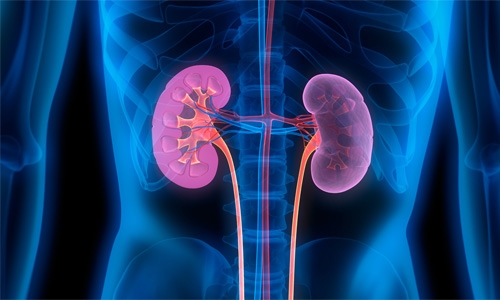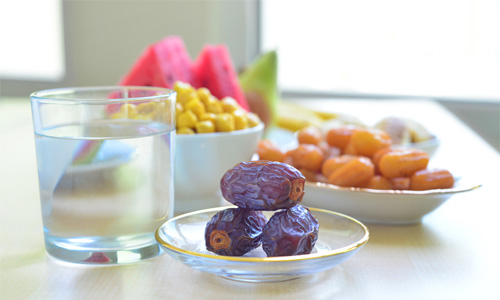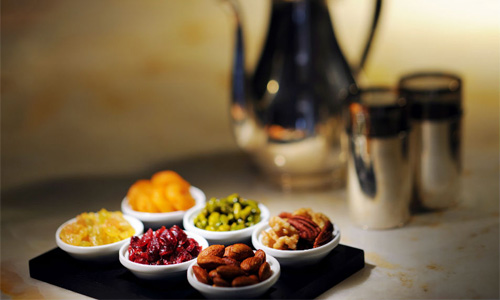Don’t forget your kidneys this Ramadan
Importance of eating healthy for your kidneys
Throughout the month of Ramadan, families all over the Kingdom are getting together after sunset to share delightful and delicious iftar meals. Of course, after a long day with no food or water, it is natural to want to indulge your sugary and fried food cravings. Unfortunately, unhealthy foods during the pre-dawn and dusk meals can have harmful effects on your kidneys and overall health. And with the rate of Saudis suffering from Chronic Kidney Disease growing at 10% per year, it is now more than ever important to raise awareness about maintaining kidney-friendly eating habits throughout this holy month.
A leading Saudi nephrologist (kidney specialist) and Country Medical Director at Diaverum renal care clinics, Dr. Ali Alharbi said “In my line of work, I regularly witness patients that are unaware of the detrimental effects that over-indulgence and unhealthy lifestyle habits can have on their bodies. This is especially true during Ramadan because after 15 hours without food and water, your body and particularly your kidneys need water and healthy nutrients”.
So what is the key to ensuring good kidney health and physical endurance during the entire month? The answer is being well informed of what to eat during non-fasting hours, which is why Dr. Alharbi has provided a few “kidney-friendly” meal ideas to keep you on track and healthy.
Break your fast with a nutritious, light meal
The good news is that eating “kidney-friendly” doesn’t mean doing away with traditional foods. In line with cultural norms, Dr. Alharbi recommends breaking your fast with a few of your favourite dates because they are ideal for regulating blood sugar levels after long hours of fasting. This small snack “warms up“ your digestive system by preparing your body incrementally. This should be followed with a glass of water. Dr. Alharbi adds “For optimal kidney health, it is crucial to get 8 glasses of water before sunrise. To facilitate you daily intake, this can be divided into a large glass of room-temperature water every hour.”
Give your body 10 to 20 minutes to digest, and then you can continue your meal with something light and nutritious like a soup or salad of your choice. Apart from aiding your body to prepare for heavier food items, these water-rich foods will provide much-needed additional hydration. For the main course, grilled low-fat meat or fish rich in omega-3 with a side of rice and vegetables are the perfect way to satisfy your hunger and give your kidneys the healthy balance they crave.
After night prayer, try to stay away from the tempting Ramadan sweets. Instead stick to fruits such as watermelon, berries such as blueberries as well grapes, apples or grapefruit. Not only are these “kidney-friendly” but they will help keep you hydrated until suhoor. If you’re not hungry, have a nice herbal tea to help detoxify and flush out unwanted waste and improve circulation to your kidneys. However, consider limiting your intake to 1 or 2 cups as too much can result in dehydrating your body.
Balanced meal and plenty of hydration are key at Suhoor
For suhoor, it is important to prepare your body and give it the right fuel for the day ahead with a balanced, healthy meal that will keep you both hydrated and full, such as hard boiled eggs with a fruit salad or a slice of white cheese on whole wheat toast and a cup of plain yogurt.
Overall, good rule of thumb, for optimal kidney health this Ramadan, is to stick to fresh and wholesome foods that are low in fat and salt. Remember though, that while healthy foods are a great start, eating too much of anything, even healthy foods, is not optimal. Instead be mindful of portion sizes and eat slowly to avoid over-eating. By following these kidney health tips and taking other early preventative steps, such as daily exercise, in consultation with your doctor, you can significantly reduce your risk of developing kidney disease and ensure you stay on track to good health and overall well-being.
“Our hope is that these health tips will encourage people to adopt a healthier lifestyle this Ramadan” said Ziyad Kabli, Middle East Managing Director at Diaverum. He added “Caring for not only our patients but the entire Saudi population is of utmost importance to us. As part of our commitment to the Kingdom, we are proud of our new clinic opening in Makkah, the first private dialysis clinic inside the Holy City, which will enable Muslims who require dialysis and kidney care to perform Umrah and Hajj with peace of mind”.
Related Posts



